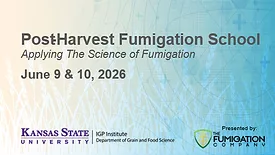Home » training
Articles Tagged with ''training''
BIZTRACKS
Penn State Extension to host FSMA Produce Grower Certification Webinar
October 10, 2023
Critical Attributes of a Successful Food Safety and Quality Organization: FSQA on the Floor
What does it take to have an extremely effective FSQA technician team on the production floor?
June 12, 2023
Never miss the latest news and trends driving the food safety industry
Newsletters | Website | eMagazine
JOIN TODAY!Copyright ©2026. All Rights Reserved BNP Media.
Design, CMS, Hosting & Web Development :: ePublishing











